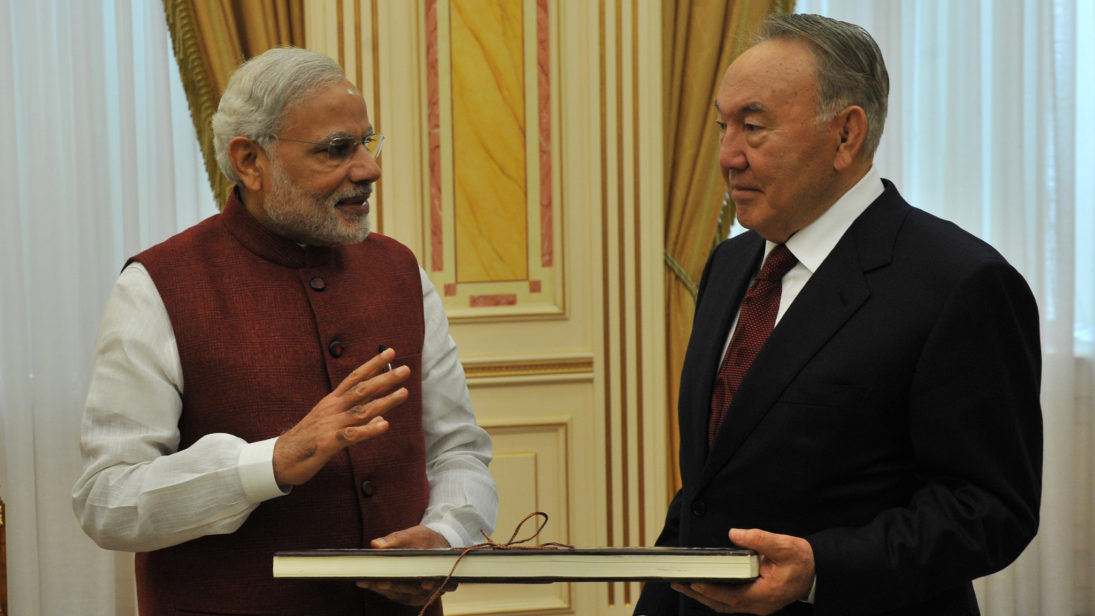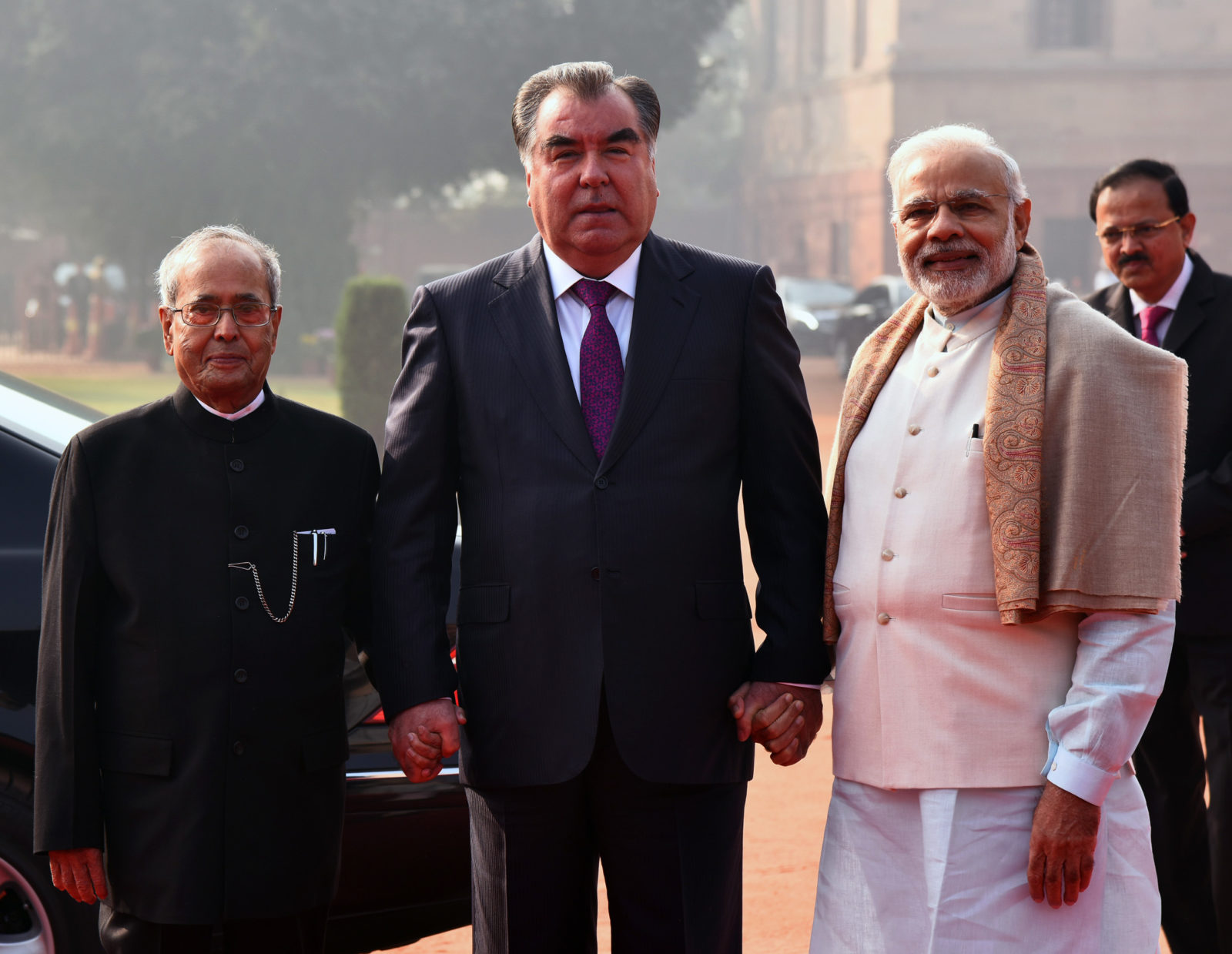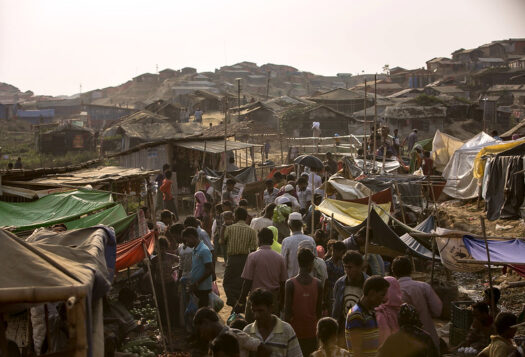
Earlier this month, India and Kyrgyzstan commenced the fourth edition of their annual joint military exercise Khanjar at Kok Jhangak. This past December, Indian Minister of State for External Affairs MJ Akbar met with Turkmenistan Foreign Minister Rashid Meredov while Indian Prime Minister Narendra Modi held talks with President Emomali Rahmon of Tajikistan and President Almazbek Atambayev of Kyrgyzstan. These developments, in addition to Modi’s five-nation tour to the region in July 2015, should be seen as India’s efforts to woo resource-rich Central Asia, which is also being courted by Russia and China. In the coming years, Central Asia will play an increasingly important role in India’s foreign policy, and India must continue to aggressively push its Connect Central Asia policy.
Traditionally, Central Asian states have not figured prominently in India’s foreign policy. Barring a few bilateral visits few and far between, India has mostly ignored the region since the states got independence from the Soviet Union in 1991. As per Indian strategic expert C Raja Mohan, “India’s struggle to reform its economy, reconstruct relations with major powers after the Cold War and reconstitute ties with neighbors meant Central Asia was never high on Delhi’s foreign policy agenda.” Though the previous government was the one that unveiled the Connect Central Asia policy, in 2012, Modi is the one who has brought new vigor to India’s engagement with the region.
The key elements that outline India’s Central Asia policy today constitute political, economic, and strategic cooperation. Political cooperation involves building strong ties through high-level engagements and interaction between leaders at the bilateral and multilateral levels, which can then translate into economic activity. Modi’s visit to all five Central Asian countries in July 2015 can be seen as a part of this political cooperation. India’s push for and recent acceptance as a member of the Shanghai Cooperation Organization will further help in engagement, especially with respect to trade and energy, with Central Asia.
Economic cooperation is vital when looking at India’s energy needs—India is the third largest consumer of crude oil in the world. Central Asia, with its large oil and gas reserves, can fulfill that need, and the Turkmenistan-Afghanistan-Pakistan-India pipeline is an important part of this strategy.
India imports a large portion of its oil and gas from the Middle East, and due to continuous instabilities in the region, the price of these resources fluctuates, which dramatically impacts India. Due to India’s heavy reliance on Middle East partners, a predicament its partners know well, India is never in a good negotiating position and stands to lose. Therefore, it is imperative for India to reconnect with Central Asia, which is resource-rich and geographically closer.

Another potential area of economic cooperation is agriculture. India, being one of the largest agrarian economies, is looking to cooperate in the production of profitable crops. This would be beneficial for the Central Asian region as well.
India’s involvement in the region will be predicated on its economic needs. Indian companies now are in search for new markets where they can expand their business. Market experts are of the opinion that Central Asia has a massive untapped potential.
Strategically, Central Asia is emerging as the next high-stakes competition among global powers, and it would behoove India to pay closer attention. Great powers like the United States, Russia, and China are already making their moves in the region. Each is eyeing the region’s resources, to exploit them for their own interests. Though, for India, its new relationship with Central Asia will be one that is constructive and mutually dependent. This is especially because of India and Central Asia’s shared interest in Afghanistan as well as countering terrorism in the region. India already has strategic partnerships with Kazakhstan, Uzbekistan, and Tajikistan, but these will come into even more focus in light of the U.S. drawdown in Afghanistan and the recent increase in instability in the country. Additionally, counterterrorism has emerged as a critical area of cooperation, with India having joint working groups on counterterrorism with Kazakhstan and Uzbekistan, and Prime Minister Modi seeking support for India’s proposal on the Comprehensive Convention on International Terrorism during his visits.
With India’s rising energy needs and China making inroads into Central Asia, New Delhi can ill-afford to ignore the region as it did by not prioritizing it in the last two decades. The geopolitics of this resource-rich region is changing very fast, and India must shift gears if it wishes to attain the variety of benefits Central Asia has to offer.
***
Image 1: Flickr, MEAphotogallery
Image 2: Flickr, MEAphotogallery


